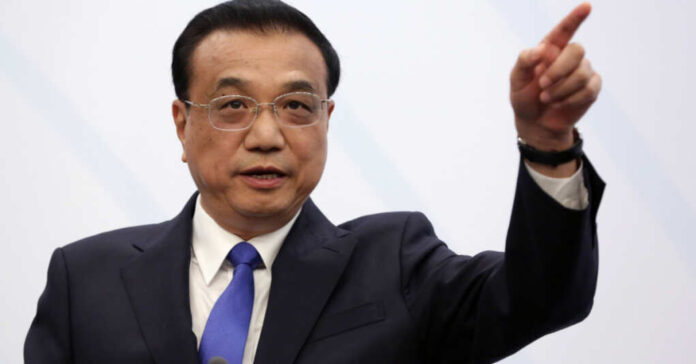
Spending a decade in someone’s shadow is an incredibly difficult thing to ask of anyone. To do so as the no. 2 in the Chinese Communist Party is even more difficult. Yet, that’s exactly what Li Keqiang did for Xi Jinping. His stepping down marks a massive turning of the tide for Chinese politics. Now, Xi will have solidified the rubber stamping of his rule.
Despite leaving the Communist Party’s Politburo Standing Committee back in October, and before retirement age, he still has to deliver the state of the nation address to the party on March 6th. While written to reassure the Chinese people that the country was doing fine, it contained little to no new information.
Li was once seen as an important, powerful, and rising leader in the party. Yet, instead of continuing to climb, he was stuck out of the limelight and watching the power Xi held as a result of his elevation of the military and security services to aid in the “great rejuvenation of the Chinese nation.” This shift only pushed Li further into the shadow of Xi with many forgetting he was in fact second in command.
Steve Tsang serves as the director of the China Institute at the London University School of Oriental and African Studies, and talked about Li not being a Xi loyalist as “the main reason why he will be remembered fondly.”
In the 1990s as the AIDS epidemic raged across the globe, China was not exempt. With Li serving as governor over the densely populated Henan province, he failed to report on the AIDS outbreak that streaked across his province due to illegal blood-buying rings that would mix plasma together and reinject it into donors after removing the blood products. According to many, state officials had their hands in the process and the money.
Despite not being in office when it happened, Li’s administration had an active role in covering it up. His office blocked the victims from getting any sort of compensation, and they harassed the people of China who worked on behalf of orphans as well as others affected by the blood pooling. Then again, Li’s background made him very different than many other politicians.
First introduced to politics during the Cultural Revolution of 1966-76, Li was an English speaker who was open to the ideas of Western liberal politics. He was also a student at Peking University, where he studied law and economics. Unlike many of his contemporaries, Li refused to use his political connections to get him there. Instead, he made it solely on his own efforts.
Following his graduation, Li was sent to work for the Communist Youth League, an organization dedicated to grooming university students for positions of power in the party. At the time it was headed by future president and part hero Hu Jintao. He didn’t remain there long though, the party saw something in him, and shortly after he was off to the next position.
His lack of elevation to the top and removal from the limelight is something many blame on Li’s decisions. When given platforms he rarely took advantage of them, unlike people on all sides of him. At his only annual news conference held on the closing day of the congressional annual session, he chose to remind people of his talking points and stats, instead of speaking to the people. When China faced its three-year battle with COVID Li was almost invisible to the public eye.
This humbleness attracted Hu to push for him to become the new President as he left office, but unfortunately for Li, the need to balance out party functions took them to choose Xi instead. As the son of a former premier and a party elder, he was the easy consensus candidate. Li seemed to take being number two as a good thing. Even if he wasn’t calling all the shots, he was still helping to lead China.














